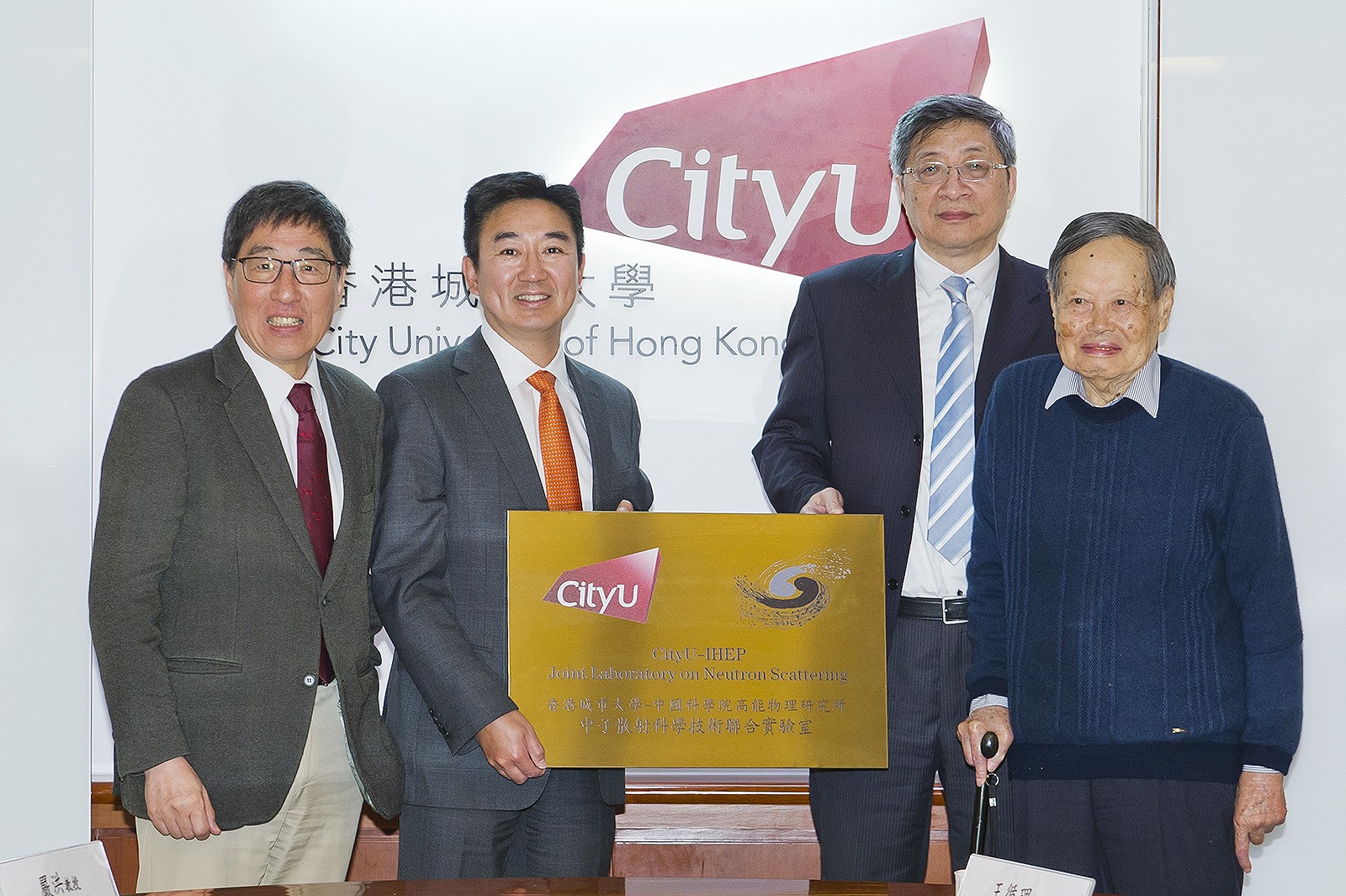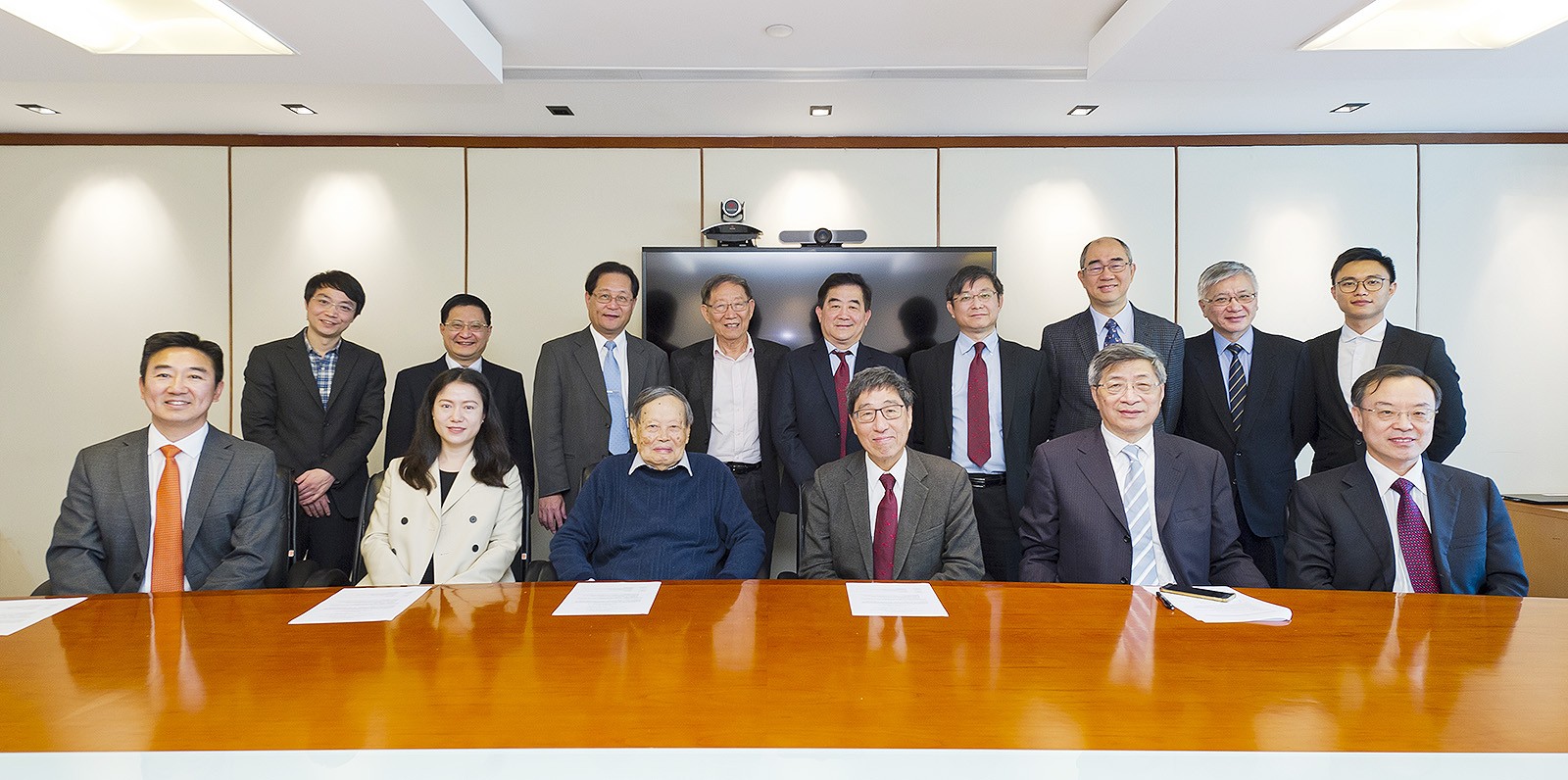Joint laboratory on neutron scattering co-established by CityU and CAS officially opens
Research into neutron scattering in Hong Kong will benefit with the opening on 27 February of a joint laboratory co-established by City University of Hong Kong (CityU) and the Institute of High Energy Physics under the Chinese Academy of Sciences (CAS).
The City University of Hong Kong - Institute of High Energy Physics Joint Laboratory on Neutron Scattering is the only laboratory in Hong Kong for research into this discipline.
The laboratory has great potential to enhance the city’s role in developing science and technology in the Greater Bay Area and will work closely with the China Spallation Neutron Source (CSNS) in Dongguan on professional training, research projects and facilities.
Distinguished guests attending the launch were Professor Way Kuo, CityU President; Professor Yang Chen-ning, Nobel Laureate in Physics; Professor Chen Hesheng, Director of CSNS and a Member of CAS; and Professor Wang Xunli, CityU’s Chair Professor of Physics and Head of the Department of Physics. Professor Chen and Professor Wang are both co-Directors of the Joint Laboratory.
The Joint Laboratory has been supported by CAS and Hong Kong’s Croucher Foundation since 2015. It was approved by CAS and ranked 1st among the five newly added joint laboratories after an evaluation in October 2018.
In his remarks at the ceremony, Professor Kuo said he was delighted to see CityU’s development in neutron scattering, and he expected that significant achievements would be accomplished under the leadership of Professor Wang.
Professor Yang said that research on neutron scattering were important in materials science, biology and chemistry. As science and technology development is one of the major focuses in the Greater Bay Area, he believed that the Joint Laboratory would make valuable contributions to the region.
CSNS in Dongguan, which officially opened last August, is the 4th institute in the world to have a neutron scattering facility and a major technology centre in the Greater Bay Area. Professor Chen said that the Joint Laboratory would boost collaboration between CSNS and Hong Kong scientists, promote new scattering instruments and nurture more scientists working in neutron scattering. This means that Hong Kong can enjoy major technology infrastructure in the region for further enhancement of its science and technology research.
Professor Wang said the Joint Laboratory would build its own scattering instrument through the collaboration with CSNS. Also, through the sponsorship from CAS and the Croucher Foundation and the grant from the Collaborative Research Fund under the Research Grants Council, the Joint Laboratory will build a scattering instrument for studies into disordered materials. He added that the Greater Bay Area would offer tremendous opportunities for technology development. For instance, the mainland is planning to build Southern Light Source, which will benefit more Hong Kong scientists when it is completed.
Research on neutrons can help scientists study the structure of materials and better understand dynamics. By measuring the change in energy and the momentum of neutron scattering, scientists can better understand the micro structure and movement pattern of materials. Such research will make significant contributions to the development of medicine, new nuclear energy, nanotechnology, physics, and material science.

